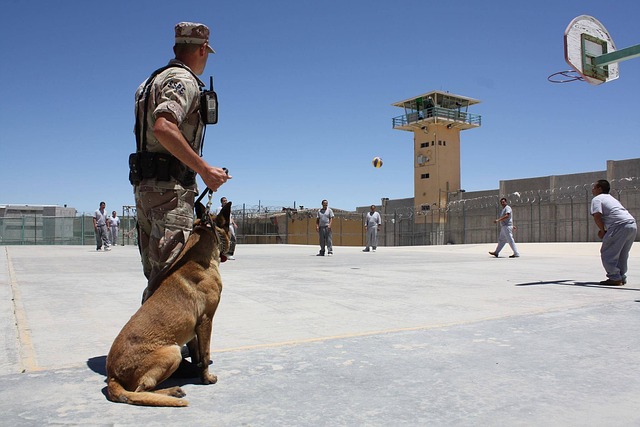Alternative sentencing for DUI offenders is gaining traction as a way to bridge the gap between rural and urban legislation. By focusing on public safety, rehabilitation, and community accountability, approaches like community service and support group participation cater to diverse needs. Rural areas emphasize education and tailored interventions, while urban centers address high-risk behaviors. These alternatives aim to reduce recidivism and create safer roads, addressing the unique challenges of each region's DUI legislation, particularly in contrasting rural vs urban settings.
In the realm of DUI (drunk driving) prosecution, alternative sentencing options offer a nuanced approach, particularly when considering rural and urban disparities. While severe weather in urban areas may impact traditional strategies, rural communities often face distinct challenges. This article explores these gaps through the lens of rural versus urban DUI legislation, delving into innovative solutions like community service for rural offenders. We also examine successful reintegration programs, highlighting how alternative sentencing can reduce recidivism and foster safer communities.
- Understanding Alternative Sentencing for DUI Offenders
- Rural vs Urban: Exploring Different DUI Legislation Scopes
- Community Service: A Viable Alternative in Rural Areas
- Impact of Severe Weather on Urban DUI Alternative Sentencing
- Success Stories: Reintegration Through Alternative Programs
Understanding Alternative Sentencing for DUI Offenders

Alternative sentencing options for DUI (Driving Under the Influence) offenders are becoming increasingly important, especially in light of varying rural vs urban DUI legislation. In many regions, traditional penalties like imprisonment and heavy fines are being re-evaluated to address the unique challenges posed by drunk driving. Alternative approaches aim to balance public safety with rehabilitation and accountability.
For instance, community service, participation in support groups, and enhanced license restrictions can be effective alternatives. These methods often cater to the specific needs of different communities, with rural areas potentially focusing on education and awareness while urban centers address high-risk behaviors. Understanding these options is crucial as they offer a more nuanced approach to DUI cases, reducing recidivism rates and fostering safer roads for all.
Rural vs Urban: Exploring Different DUI Legislation Scopes

In many countries, the scope and severity of Driving Under the Influence (DUI) legislation vary significantly between rural and urban areas. This disparity is driven by several factors, including population density, access to transportation alternatives, and cultural attitudes towards alcohol consumption and driving. Urban regions often have stricter DUI laws due to higher traffic volumes and more extensive public transportation networks, which reduce the reliance on personal vehicles. In contrast, rural communities might have less stringent regulations as they face unique challenges like limited public transit options and longer travel distances, encouraging residents to drive despite consuming alcohol.
Understanding these regional differences is crucial for implementing effective alternative sentencing options. For example, successful community service programs in urban settings could be adapted for rural areas, focusing on tasks that cater to local needs, such as maintaining rural roads or assisting at community centers. Similarly, education and prevention initiatives can be tailored to address cultural norms and practical considerations specific to each region, ultimately improving DUI legislation’s fairness and effectiveness across diverse landscapes.
Community Service: A Viable Alternative in Rural Areas

In rural areas, where communities are often more tightly knit and resources are less abundant than in urban centers, alternative sentencing options like community service can be a viable and effective response to DUI (driving under the influence) cases. This approach offers several advantages in the context of Rural vs Urban DUI Legislation. Unlike strict fines or imprisonment, which might disproportionately impact low-income individuals and strain already limited urban court systems, community service allows offenders to give back to their communities in meaningful ways.
By assigning tasks such as road clean-up, park maintenance, or volunteering at local non-profits, rural courts can promote public safety while also addressing the underlying causes of DUI behavior. This form of alternative sentencing fosters a sense of accountability and responsibility within the community, emphasizing the negative impacts of impaired driving without relying solely on punitive measures that may not be as readily available or effective in rural settings.
Impact of Severe Weather on Urban DUI Alternative Sentencing

In regions with severe weather patterns, the implementation of Alternative Sentencing for DUI (Drunk Driving Under Influence) cases presents unique challenges and considerations. The contrast between rural and urban DUI legislation is evident when weather conditions become extreme. Urban areas, known for their bustling streets and dense populations, often have more established alternative sentencing programs due to higher legal awareness and resources. In contrast, rural communities may face barriers such as limited access to specialized courts or treatment centers, exacerbating the impact of severe winters or summers on DUI alternatives.
These weather-related obstacles can influence the availability and effectiveness of alternative programs, particularly for non-motor vehicle offenses. For instance, snowy or icy roads in rural settings might discourage participation in community service sentences, while hot and humid conditions could hinder successful completion of alcohol treatment programs. As a result, law enforcement and legal professionals in these areas must adapt their strategies, ensuring that the spirit of alternative sentencing—promotion of public safety alongside rehabilitation—remains intact, even amidst challenging weather conditions.
Success Stories: Reintegration Through Alternative Programs

Alternative sentencing programs for DUI (Driving Under the Influence) cases have proven successful in reintegrating offenders into society, especially in rural areas where traditional legislation might face unique challenges. These programs offer a fresh approach to punishment, focusing on education, community service, and support networks tailored to individual needs. For instance, rural communities often lack the dense social infrastructure found in urban centers, making it crucial for alternative programs to bridge this gap.
Success stories include individuals who, through such initiatives, have overcome addiction, regained employment, and reestablished connections with their communities. These positive outcomes highlight the potential of alternative sentencing to reduce recidivism rates and promote a more holistic understanding of rehabilitation. In contrast, urban legislation often grapples with higher population densities, which can make identifying and addressing individual needs more complex. Nonetheless, both rural and urban areas benefit from diverse sentencing options that cater to the specific needs and challenges faced by DUI offenders.
In conclusion, alternative sentencing options for DUI offenders play a pivotal role in mitigating the disparities between rural and urban areas. Understanding the unique challenges of each region, particularly the differences in legislation scope, is essential to offering tailored programs. While community service thrives as an effective measure in rural settings, urban areas face distinct obstacles due to severe weather conditions. However, success stories from both landscapes underscore the transformative power of these alternative programs in facilitating reintegration and promoting safer communities. By continuing to explore and adapt these solutions, we can ensure more equitable and impactful DUI sentencing across diverse geographical contexts.






